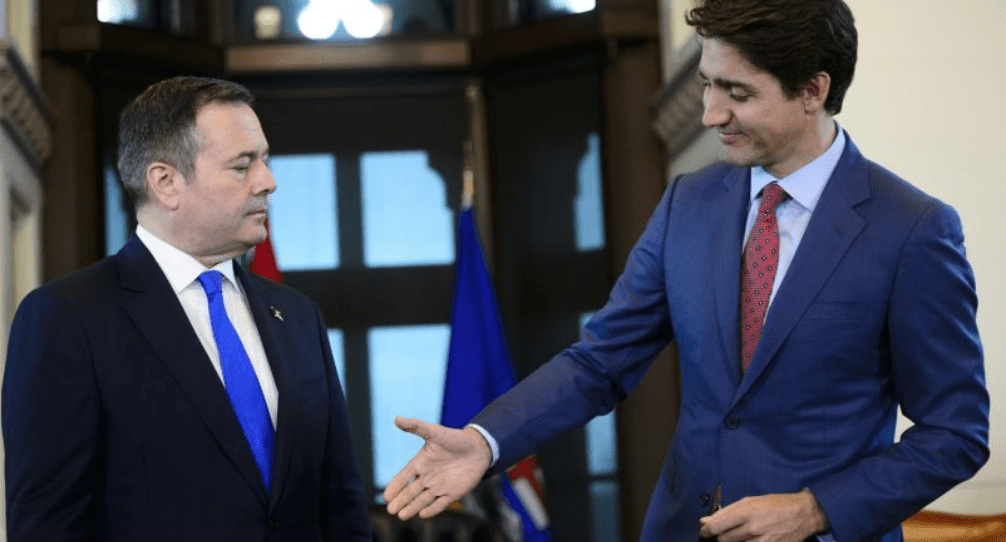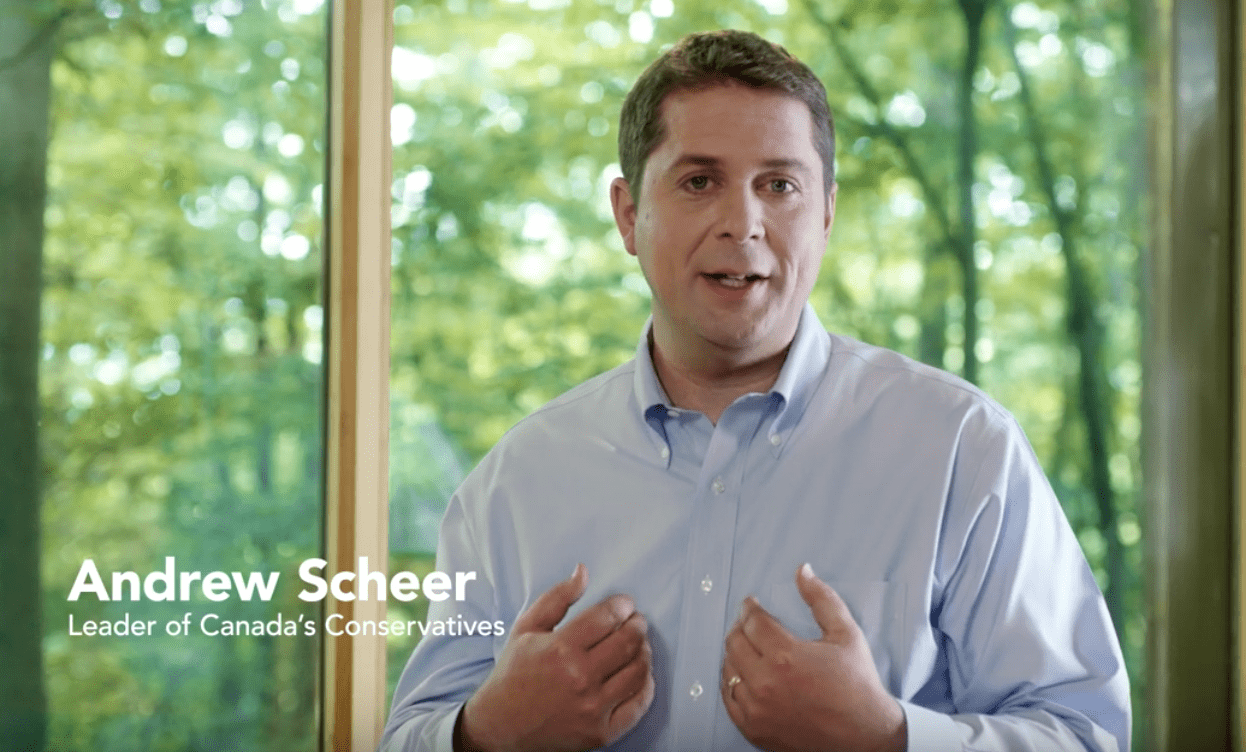The election is not quite here yet, and already we've been hearing about the doom scenario of some kind of national unity crisis if the Liberals stay in power. We've had plenty of politicians and pundits decry that the state of Confederation is "hanging by a thread" with this election, and yet, I'm looking to find the genuine grievances rather than overheated rhetoric. Certain Conservative voices have bemoaned that Alberta's economy isn't somehow front and centre in this campaign, as though there aren't other pressing issues in this country, or that the province and its economy aren't pivotal to the debate over climate change. Nevertheless, a bunch of swivel-eyed loons (and a fair number of grifters) are trying to use the threat of Alberta separatism as a cudgel to warn against Trudeau remaining in office, but is this really a threat we should take seriously?
Amidst these threats, we've also seen a number of big and small-c conservative voices sigh wistfully about the supposed golden age of national unity under Stephen Harper, when he caved to a bunch of Quebec's demands (remember the "fiscal imbalance" that didn't exist, but they cut a cheque anyway so that Jean Charest could give Quebeckers a tax cut?) and refused to engage with premiers as a collective so that they couldn't gang up on him. Apparently, that was harmony. He certainly did Alberta no favours, with an inability to get traction on any pipeline project to tidewater, not securing American cooperation on Keystone XL, not properly consulting with First Nations on Northern Gateway (and the Federal Court of Appeal did point the finger directly at the federal government), and his being on course to do the very same again with Trans Mountain. His government's decision to change the taxes to income trusts hurt the oil patch, as did his blocking oil sands company takeovers by Chinese companies. His gutting of environmental legislation only meant projects were now subjected to protracted litigation. But this was the "golden age."
And what is tearing the country apart? Insisting on a federal price on carbon, apparently, because ensuring a level playing field so that one province couldn't disadvantage the others by creating a race to the bottom by maintaining a lower price sure was a recipe for division. The court challenges around the federal carbon price being imposed on provinces who have not lived up to their national obligations have been losing propositions for those provincial governments, and you can be sure that they're going to lose at the Supreme Court of Canada in the New Year when the Saskatchewan and Ontario cases get heard there. (Funnily enough, Ford's rhetoric that Ontario has done more than its fair share and that other provinces need to step up is pretty much an attack on Alberta, so well done there, conservative solidarity).
So what is left for the threats facing the unity of this country? Jason Kenney and Scott Moe might tell you it's equalization, but that again is based on a number of falsehoods about how equalization works not to mention the fact that Kenney himself was at the Cabinet table when the current formula was finalized and he endorsed it then, and that 2007 formula wound up giving more money to Quebec and turned Ontario into a "have-not" province (marginally). Kenney has found great utility in framing it as though the province cuts a cheque to Ottawa, who then turns it over to Quebec, when in fact it comes out of federal income tax paid by all Canadians, and Albertans have the highest incomes by far, meaning they pay more federal income tax. That money is given to provinces with less fiscal capacity when it comes to delivering similar levels of public services. Quebec's share may look large, but the amount on a per capita basis is very low, and they have some of the highest taxes in the country (unlike Alberta, which has the lowest because they chose instead to pay for services using non-renewable resource revenues). The talk about including resource revenues in the calculation would just wind up with Quebec getting even more equalization, and the proposal that Scott Moe put forward about "reforming" equalization would simply be handing out money to all provinces and wouldn't be equalization at all.
Accusations that other provinces are blocking Alberta's main export is overblown because interprovincial pipelines are federal jurisdiction, and Quebec's objections didn't kill Energy East simple economics did. Anytime Andrew Scheer or anyone else brings up a plan to revive the project, the irony that they would be reviving a National Energy Program that would see Alberta taking a $10/barrel discount to feed Eastern refineries is too rich to ignore. Funnily enough, the constant talk about Energy East (which, I repeat, is never going to happen) is one of the things that some pundits say has led to a revival of the Bloc in Quebec, because they feel like they are being attacked by other provinces (mostly Alberta) who want to impose pipelines on them.
Jason Kenney's other bugaboos federal bills like the BC north coast tanker ban and the federal environmental assessment reform are hyperbolic nonsense, given that there was no project that the tanker ban would affect (seriously, Northern Gateway isn't coming back) and that we've already established that Harper's gutted environmental assessment framework only resulted in more litigation whereas this new process is aimed at creating a more streamlined process. They are not attacks on the province, while the federal Liberals have bent over backwards to appease Alberta's concerns with buying the Trans Mountain pipeline to ensure that its expansion goes ahead, and shovelling money into province as "stabilization funds" during their oil-price-crash recession, for no credit.
If there's a threat to national unity, it's coming from a premier Kenney who has only offered a suite of lies and snake oil promises aimed at keeping his voter base angry at someone other than him, and the federal government is that target, unity implications be damned. If there is a threat to take seriously, it's that anger being fomented with nowhere to go, and that's on Kenney not Trudeau.
Photo Credit: CBC News








